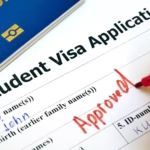A year has passed since the establishment of the Transitional Presidential Council (TPC), revealing a disastrous assessment. Initially created as a collective body intended to restore the country and establish foundations for a return to constitutional order, the TPC has instead become mired in lack of transparency, internal disputes, and inaction.
Misconduct, Dissension, and Security Failures
The first months set the tone. A misconduct scandal involving three TPC members erupted, permanently damaging the institution’s legitimacy. Simultaneously, armed gangs significantly strengthened their grip on national territory, now controlling a substantial portion of the Western, Artibonite, and Central departments.
Port-au-Prince, a surrounded metropolis, now stands isolated from the country. National highways have become deadly zones, and Toussaint Louverture International Airport is virtually paralyzed, abandoned by air carriers. Anxiety and insecurity dominate residents’ lives, while TPC members, administration officials, and their supporters seem to exist in a separate universe, sheltered from the violence endured by the population.
Illusory Institutional Structures
This transitional period witnessed the creation of various entities, including the Provisional Electoral Council and the National Conference Steering Committee, meant to lead to constitutional consultation and election organization. These bodies, far from embodying hoped-for renewal, struggle to become operational and display the same flaws as the TPC: inertia, opacity, and internal conflicts.
The TPC appointed two Prime Ministers in twelve months. Gary Conille, the first appointee, was dismissed following disagreements with council members. His replacement, Alix Didier Fils-Aimé, quickly found himself in direct confrontation with National Police Director General Rameau Normil. This rivalry has generated immediate security repercussions: the locality of Kenscoff is now under criminal group control, where they regularly perpetrate violent acts against civilians and law enforcement.
The international community has not honored its promises. Announced financial support has not materialized, and fears of gang takeover appear more tangible than ever. Meanwhile, Haitians live in absolute distress, abandoned by their supposed representatives.
One year after its establishment, the Transitional Presidential Council’s journey is characterized by unfulfilled commitments, inefficient choices, and unprecedented security deterioration. From Leslie Voltaire to Régine Abraham, through Emmanuel Vertilaire, Smith Augustin, Edgard Leblanc Fils, Fritz Alphonse Jean, Louis Gérald Gilles, Laurent St-Cyr, and Frinel Joseph, TPC members face an unforgiving reality: their transition seems to have led not toward democratic renewal, but toward national collapse.






